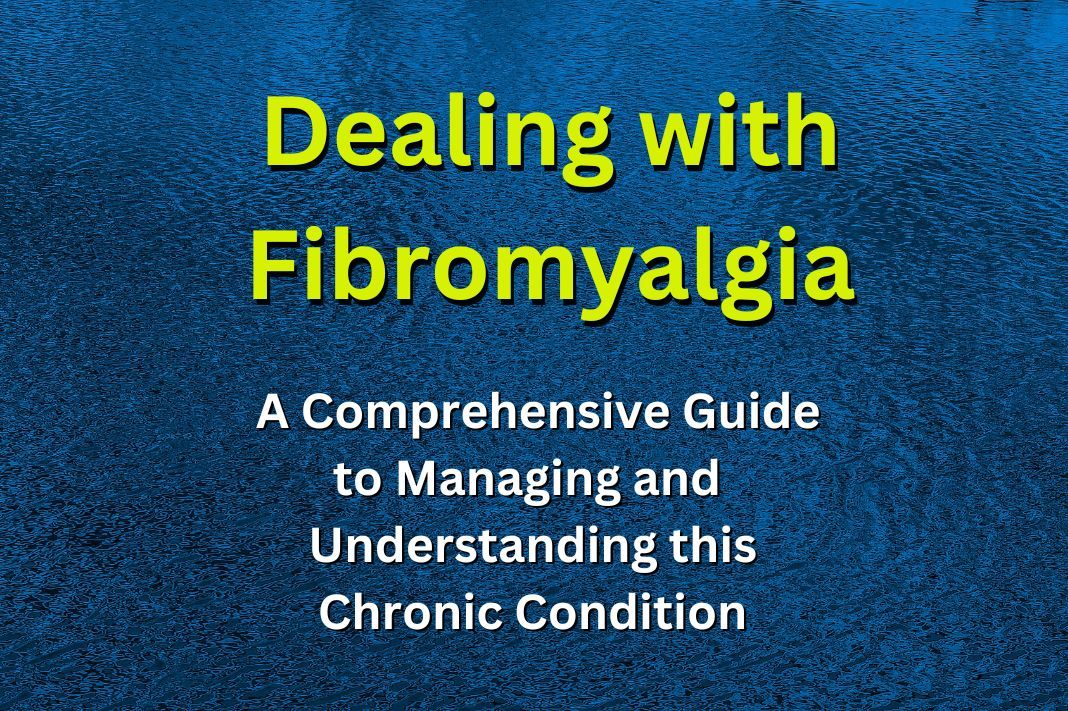A Comprehensive Guide to Managing and Understanding this Chronic Condition
Fibromyalgia, a complex and often misunderstood chronic condition, affects millions of people worldwide. If you or a loved one is dealing with fibromyalgia, you know just how challenging it can be to manage the symptoms and maintain a good quality of life. In this comprehensive guide, we will delve into the intricacies of fibromyalgia, its symptoms, causes, and, most importantly, effective strategies for managing and improving your daily life while living with this condition.
Understanding Fibromyalgia
 Fibromyalgia is a chronic disorder characterized by widespread musculoskeletal pain, fatigue, and tenderness in specific areas of the body, commonly referred to as “tender points.” While the exact cause of fibromyalgia remains elusive, researchers believe it involves a combination of genetic, environmental, and neurological factors. It predominantly affects women, although men and children can also develop the condition.
Fibromyalgia is a chronic disorder characterized by widespread musculoskeletal pain, fatigue, and tenderness in specific areas of the body, commonly referred to as “tender points.” While the exact cause of fibromyalgia remains elusive, researchers believe it involves a combination of genetic, environmental, and neurological factors. It predominantly affects women, although men and children can also develop the condition.
Common Symptoms
- Widespread Pain
The hallmark symptom of fibromyalgia is widespread pain that affects multiple areas of the body. Muscle stiffness is frequently present along with this pain, which is best described as a deep, persistent ache. - Fatigue
Chronic fatigue is a prevalent and debilitating symptom of fibromyalgia. Even after a full night’s sleep, individuals with fibromyalgia wake up feeling tired and unrefreshed. - Cognitive Difficulties
Fibromyalgia can cause cognitive impairments, often referred to as “fibro fog.” This includes memory issues, difficulty concentrating, and mental confusion. - Tender Points
Fibromyalgia is diagnosed based on the presence of tender points on the body. These are specific areas that are sensitive to touch and are often used to confirm the diagnosis.
Diagnosing Fibromyalgia
Diagnosing fibromyalgia can be challenging, as there are no specific laboratory tests or imaging studies that can definitively confirm the condition. Instead, healthcare providers rely on a combination of medical history, physical examination, and a process of elimination to make a diagnosis.
While the exact cause of fibromyalgia remains elusive, researchers believe it involves a combination of genetic, environmental, and neurological factors. Share on XIt’s essential to consult a healthcare professional if you suspect you may have fibromyalgia. Early diagnosis and intervention can significantly improve your quality of life.
Coping Strategies and Treatment Options
Living with fibromyalgia can be physically and emotionally draining, but there are numerous strategies and treatment options available to help manage the condition effectively.
- Medications
Medications are often prescribed to help manage the symptoms of fibromyalgia. These may include pain relievers, antidepressants, and anticonvulsants. It’s crucial to work closely with your healthcare provider to determine the most suitable medications for your specific needs. - Physical Therapy
Physical therapy can be highly beneficial for individuals with fibromyalgia. A trained therapist can help you develop an exercise routine that focuses on improving flexibility, strength, and overall function. - Lifestyle Modifications
Making lifestyle changes can have a significant impact on managing fibromyalgia symptoms. This includes maintaining a regular sleep schedule, practicing stress-reduction techniques, and adopting a balanced diet. - Alternative Therapies
Many individuals with fibromyalgia find relief through alternative therapies such as acupuncture, massage therapy, and chiropractic care. These complementary treatments can help alleviate pain and improve overall well-being.
Living Well with Fibromyalgia
While fibromyalgia is a chronic condition that may never completely go away, it is possible to live a fulfilling life with the right strategies and support. Here are some tips for enhancing your quality of life while dealing with fibromyalgia:
- Build a Support System
Reach out to friends and family members who can provide emotional support and understanding. Joining a fibromyalgia support group can also be incredibly beneficial. - Manage Stress
Stress can exacerbate fibromyalgia symptoms. Practice relaxation techniques such as meditation, deep breathing exercises, or yoga to help reduce stress levels. - Pace Yourself
Listen to your body and avoid overexertion. It’s essential to strike a balance between activity and rest to prevent symptom flare-ups. - Stay Informed
Keep yourself informed about the latest developments in fibromyalgia research and treatment options. Knowledge is empowering and can help you make informed decisions about your health.
In conclusion, fibromyalgia is a complex condition that requires patience, understanding, and a multifaceted approach to management. By seeking proper medical guidance, adopting lifestyle modifications, and staying connected with a supportive community, you can effectively navigate the challenges of living with fibromyalgia.



